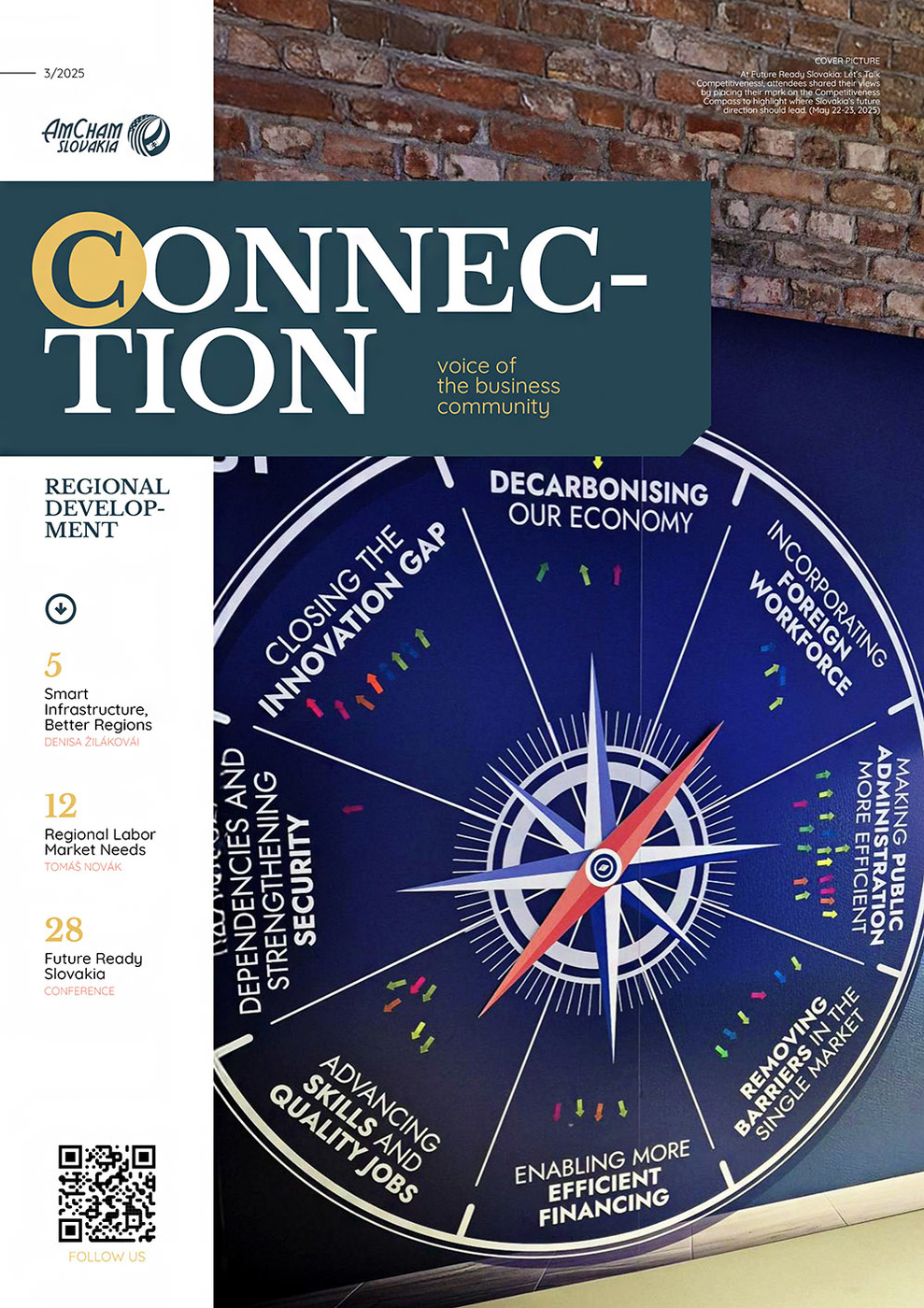Ms. Rumiz, how do you perceive the current labor market dynamics in Slovakia? What regional disparities are most evident today?
The Slovak labor market has been structurally unbalanced for years. In the western regions—Bratislava, Trnava, Trenčín, and Žilina—employers struggle to find workers. In contrast, in the Prešov and Košice regions, we see a high number of job seekers but a lack of available job opportunities. This imbalance continues to widen. While the national unemployment average is around 5%, in Prešov it exceeds 8%, the highest rate in the country. Low mobility further exacerbates the issue—many people are unwilling to relocate for work due to homeownership and a lack of accessible rental housing. How would you assess the labor market specifically in eastern Slovakia? What are its strengths and weaknesses?
How would you assess the labor market specifically in eastern Slovakia? What are its strengths and weaknesses?
The East has great potential. There is a well-educated population, strong universities, vocational schools, and developed shared services centers, particularly in Košice. However, the labor market remains limited in scope. One major weakness is the lack of diversity in job opportunities. Most employment is in wholesale and retail, transportation, healthcare, and education. The lowest employment is in finance, insurance, agriculture, and forestry. Many districts lack enough employers offering jobs across various skill levels, which reduces the motivation to stay in the region.
Where do you see the greatest mismatch between labor supply and demand?
The biggest disconnect lies in qualifications and expectations. Companies increasingly seek technical or IT skills, foreign language proficiency, and adaptability. However, many candidates, especially those from smaller towns, come from fields like education, economics, or services, often without practical experience. From employers’ perspective, these are “unprepared” graduates. Even when technically qualified workers are available, they’re reluctant to relocate due to the lack of affordable housing or poor transport infrastructure.
What role does ManpowerGroup play in this environment? What specific services do you provide to companies and job seekers?
ManpowerGroup has been active in Slovakia since 2003. With over 20 years of experience, we’ve become trusted partners for both employers and job seekers. Our mission is to align labor market needs with available talent. We offer tailored recruitment, from individual searches to large-scale hiring, specialized outsourcing solutions, temporary staffing, and consulting services. For candidates, we provide reskilling opportunities, career coaching, and support in transitioning to high-growth sectors. Do you see differences in expectations between Generation Z and older job seekers?
Do you see differences in expectations between Generation Z and older job seekers?
Absolutely. Generation Z enters the labor market with different expectations. They seek flexibility, digital processes, and a strong company culture. They want their work to be meaningful and to have opportunities for development. At the same time, they face harsh realities: many young people from the East leave for jobs in Bratislava, the Czech Republic, or Western Europe. Why? Lack of experience, limited job offerings, and stagnation in their home regions. If this trend continues, the East will lose its greatest asset—its future workforce.
In terms of regional development, what types of partnerships is ManpowerGroup currently fostering in eastern Slovakia?
We actively collaborate with local labor offices and educational institutions, helping prepare students for the labor market and supporting young people in finding employment right after graduation. We also work with dozens of employers across various sectors and continue to build our position as a reliable partner—for companies, job seekers, and public institutions. In eastern Slovakia, we support initiatives aimed at labor market development and raising the quality of employment opportunities. We firmly believe this region has the potential to become one of Slovakia’s key drivers of growth in the years ahead.
Zuzana Rumiz, General Manager, ManpowerGroup Slovakia



Follow us